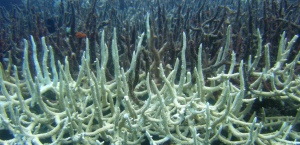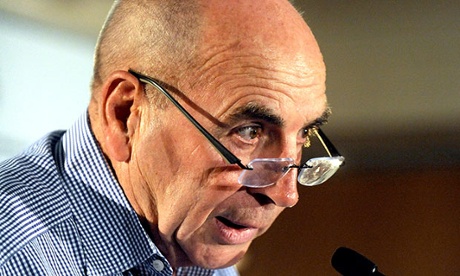 Ove Hoegh-Guldberg, Global Change Institute, University of Queensland. From The Conversation, March 31 2014.
Ove Hoegh-Guldberg, Global Change Institute, University of Queensland. From The Conversation, March 31 2014.
Despite the mounting evidence, there are still some who would deny the veracity of human-caused climate change and its potential to disrupt and harm our communities. Most dissenters rely on non-expert sources, which tend to have low grades of analysis, review and scientific integrity. Not so with the Intergovernmental Panel on Climate Change report, the latest part of which has been released today. Continue reading


 Lenore Taylor, political editor,
Lenore Taylor, political editor, 